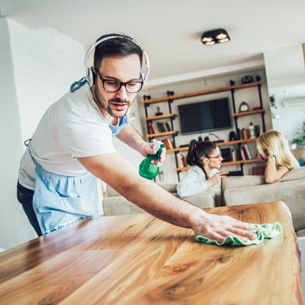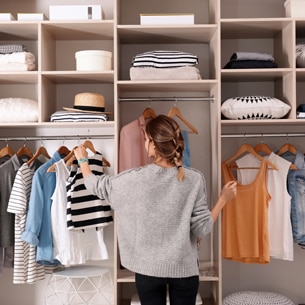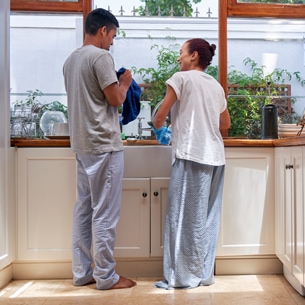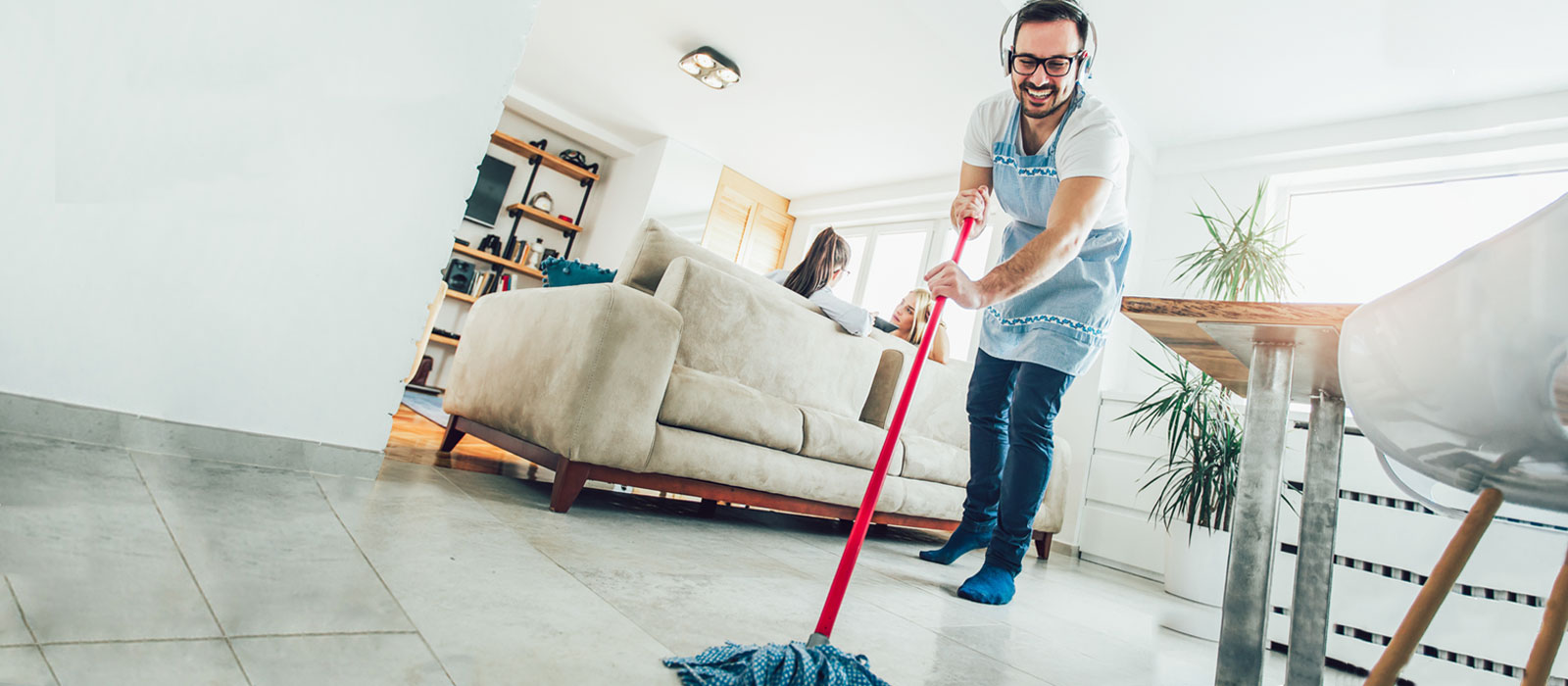Women still do most of the housework, but this is changing
Cleanliness is highly symbolic: "The topic of cleanliness evokes deep-seated ideas - of a purity that must assert itself in the fight against dark, wild, impure forces of nature", explains Prof. Paula-Irene Villa, holder of the Chair of Sociology and Gender Studies at the Ludwig Maximilian University in Munich. For many people, cleaning their own home still has something magical about it:
"It is like a ritual to banish those dark forces, which are perceived as chaotic, threatening, but sometimes also seductive, from their own circle of life," says Prof. Villa. And who doesn't know the good feeling of contentment when everything is finally clean, in its place and the world is back in order after cleaning the house? Who is responsible for this was undisputed for a long time: Cleaning was a chore for women. But this is changing.
"It is like a ritual to banish those dark forces, which are perceived as chaotic, threatening, but sometimes also seductive, from their own circle of life," says Prof. Villa. And who doesn't know the good feeling of contentment when everything is finally clean, in its place and the world is back in order after cleaning the house? Who is responsible for this was undisputed for a long time: Cleaning was a chore for women. But this is changing.
Is the distribution of roles changing?

Is the distribution of roles changing?
Nowadays, tasks such as floor cleaning, ironing and bathroom cleaning are no stranger to men either. More and more women are employed and classic models are giving way to more and more individual lifestyles. But what about the distribution of roles between men and women in the household? "Although a new generation of men and fathers is proclaimed every year, our research shows that we are still a long way from equal distribution in housework and raising children," says Prof. Villa. This is confirmed by findings from the Federal Government's second Equality Report 2017 and current figures from the German Institute for Economic Research (DIW) on the so-called gender care gap: the term "care" covers all caring activities such as caring for household and laundry needs, child care and cooking. According to traditional understanding, care has always been a female domain.
According to DIW, women's employment has increased continuously over the past 25 years. At the same time, however, the proportion of care work performed by men in couple relationships has by no means increased to the same extent. "However, the role of men is also changing," says Prof. Villa. "When living together in a relationship, it is important that men and women observe themselves and reflect on their behavior and also talk about expectations in the household. "One way in which couples can help is to avoid conflict by signaling to their partner: you are `womanly´ or `manly´, no matter what tasks you take on in our relationship and the household."
According to DIW, women's employment has increased continuously over the past 25 years. At the same time, however, the proportion of care work performed by men in couple relationships has by no means increased to the same extent. "However, the role of men is also changing," says Prof. Villa. "When living together in a relationship, it is important that men and women observe themselves and reflect on their behavior and also talk about expectations in the household. "One way in which couples can help is to avoid conflict by signaling to their partner: you are `womanly´ or `manly´, no matter what tasks you take on in our relationship and the household."
Will the Care Gap close?

Will the Care Gap close?
Perhaps a completely different trend in everyday culture will help to close the gender care gap in the future: cleaning up and keeping order are becoming more and more part of the conscious shaping of life. The Japanese cleaning expert Marie Kondo, for example, inspires millions of people with household tips and tricks. An individually designed home has an important function: namely as a place of retreat and well-being, which at the same time expresses the lifestyle of its residents. It is a place where people can be who they are. “Home is a place where you can really be yourself and feel comfortable…and there is nothing like a clean home to feel comfortable. This applies, of course, to both men and women” says Helen Biryukova, Senior Director - Regional Marketing with FHCS.
Trend towards fragmented cleaning

Trend towards fragmented cleaning
A clean home is as popular today as it was yesterday. But the way we clean our houses and apartments has changed profoundly in many parts of the western world: Our grandparents, for example, did a whole day's basic cleaning, usually on Saturdays. "Nowadays, we are much more time-poor and we tend to have a more fragmented cleaning routine, with top up cleaning, fitting around our daily lives," says Biryukova. Among other things, this is due to the fact that both men and women are working today and are much more flexible and mobile than before. "If, for example, you have 15 minutes to clean after work, you want to use this time as effectively as possible. For us at Vileda, this means that we have to pay more and more attention to developing products that save time but still deliver a hygienic and thorough clean," says Biryukova.
Szolgáltatások
A Viledáról



